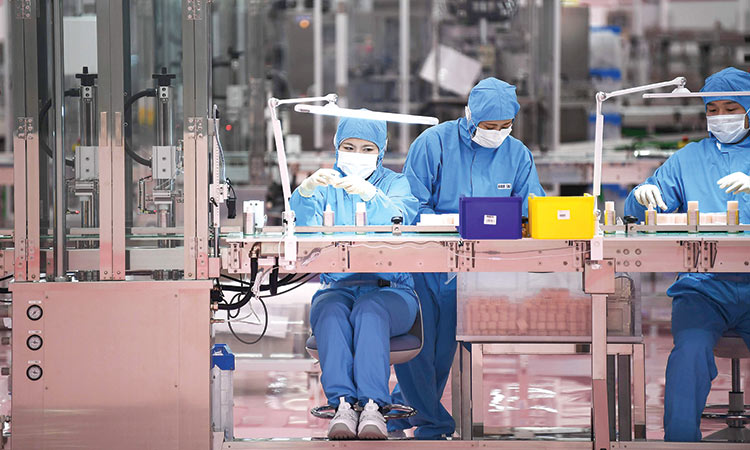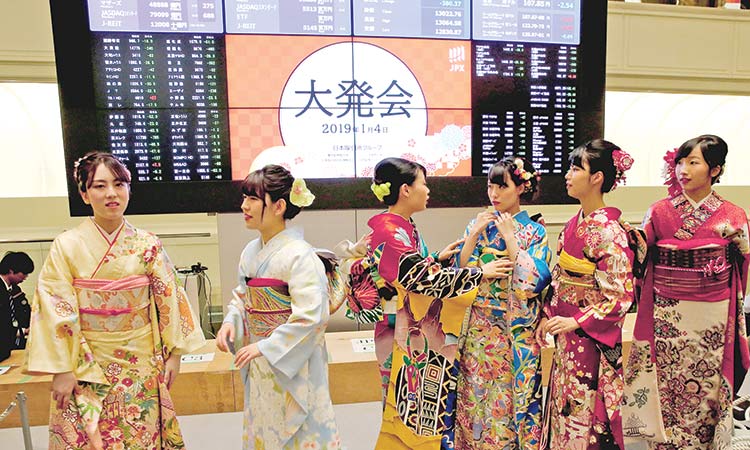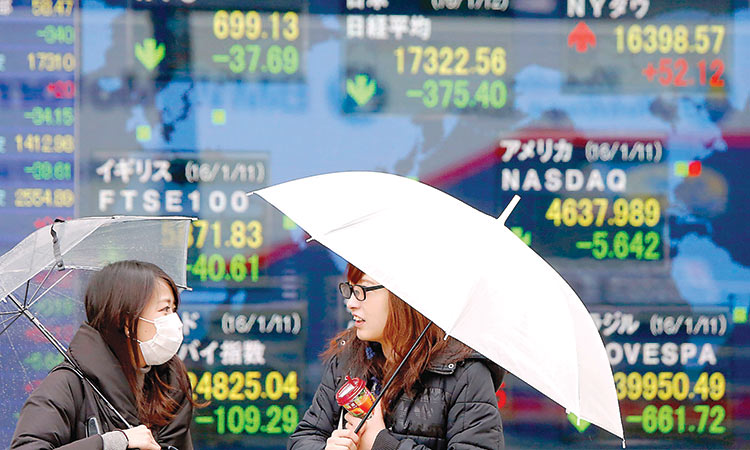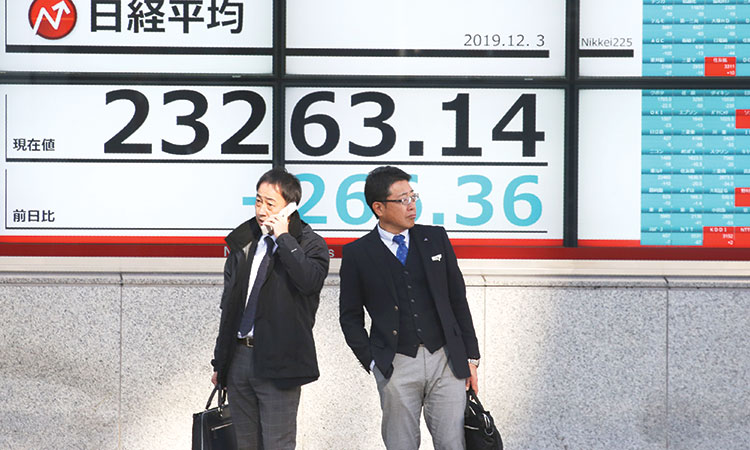Japanese consumer, wages data cast doubt on household sector
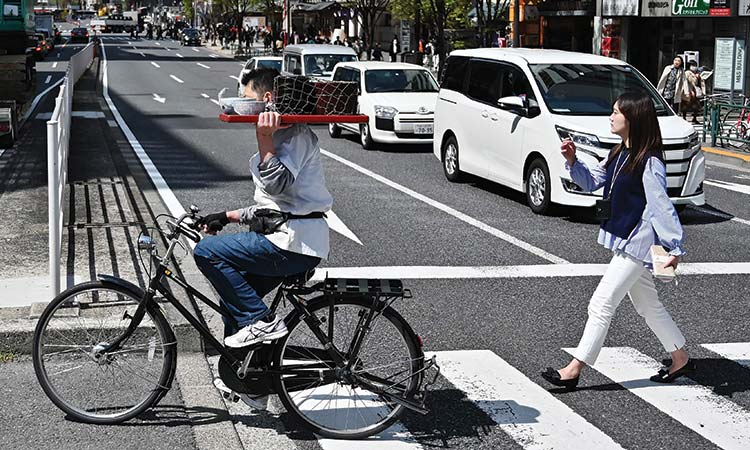
A deliveryman on bicycle transports a tray of food over his shoulders in Tokyo. Agence France-Presse
The data is likely to be discussed by policymakers worried that risks to the export sector from ongoing trade disputes may discourage firms from raising wages, which in turn would hurt consumption.
The 1.7 per cent year-on-year increase in household spending was less than the median estimate for a 2.1 per cent increase and followed a 2.0 per cent increase in January.
Taken with separate wages data, also released on Friday, the batch of numbers suggest household income may not be strong enough to underpin consumption at a time when exports and output are weakening due to the U.S.-Sino trade war.
While those concerns were somewhat offset by a Cabinet Office gauge of economic performance improving slightly in February, the broad mix of indicators suggest the government could come under pressure to delay a planned sales tax hike and turn to the Bank of Japan (BoJ) for help in supporting the economy.
“Labour shortages are not pushing up wages, and you need wages to rise for inflation expectations to rise,” said Norio Miyagawa, senior economist at Mizuho Securities.
“The BoJ is on hold for now, but it may have to come up with something if there is another downside shock to the economy.” The growth in household consumption in February was driven by spending on autos and mobile phone charges.
Inflation-adjusted real wages in Japan fell 1.1 per cent in February from a year ago, the fastest decline since June 2015.
The soft household sector indicators follow signs of similar weakness in the corporate sector.
Japan’s business mood slumped to a two-year low in the March quarter, a central bank survey showed on April 1, highlighting the impact the Sino-US trade war was having on sentiment and economic activity.
Factories across Japan depend heavily on selling electronic parts and heavy equipment to manufacturers in China, which leaved Japan exposed to tit-for-tat tariffs between Washington and Beijing.
While the softness in Japan’s consumer sector casts a cloud over the outlook for 2019, other indicators on Friday showed not everything was dire in the economy. The Cabinet Office’s coincident indicator index rose 0.7 point in February, the first improvement in four months, driven by manufacturers’ forecasts for an increase in output in March and easing concerns that the economy had entered into a recession.
In another positive sign for the BoJ, its quarterly survey of households showed more people expect inflation to creep higher one year and five years from now.
However, the survey also showed more households feel economic conditions are worse than a year ago.
Overall, the data on consumer spending and wages is likely to raise concerns about the economy. There are still risks to domestic demand, and expectations may heighten for the BOJ to ease monetary policy further.
The government plans to raise the nationwide sales tax to 10 per cent from 8 per cent in October to generate extra revenue for rising welfare costs.
Some economists and politicians worry that if this plan is not delayed then consumer spending will weaken after the tax hike.
The BoJ is in a bind over how to manage the economy. Years of heavy money printing and prolonged ultra-low rates have dried up the bond market and squeezed profits at banks, prompting Japan’s banking lobby to urge the BOJ to rethink its monetary stimulus.
However, Japan’s economic outlook this year is weaker than last year’s, which supports the argument that the BoJ will eventually need to come up with some measures to keep already low inflation from slowing.
Japan’s Nikkei edged up on Friday to a fresh one-month high as expectations of an imminent US-China trade deal prompted investors to buy back shares they had sold, while japan Post Insurance, or Kampo, jumped on hopes of deeper privatisation.
The Nikkei share average rose 0.38 percent to 21,807.50, the highest close since March 4. For the week, the benchmark index was up 2.83 percent, the biggest weekly gain in about three months.
China’s Xinhua news agency, quoting Vice Premier Liu He, reported that President Xi Jinping said progress was being made and called for an early conclusion of negotiations.
US President Donald Trump said that trade talks with China were going well and he would only accept a “great” deal as negotiators hammered out differences ahead of a meeting between Trump and China’s vice premier on Thursday.
Agencies
